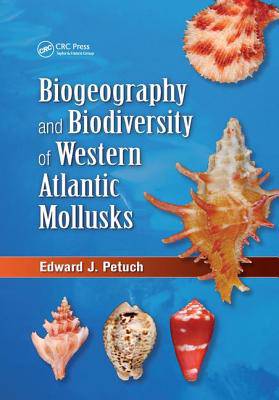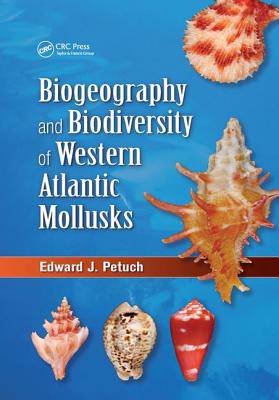
- Retrait gratuit dans votre magasin Club
- 7.000.000 titres dans notre catalogue
- Payer en toute sécurité
- Toujours un magasin près de chez vous
- Retrait gratuit dans votre magasin Club
- 7.000.0000 titres dans notre catalogue
- Payer en toute sécurité
- Toujours un magasin près de chez vous
Description
Shallow water marine molluscan faunas are distributed in a pattern of distinct, geographically definable areas. This makes mollusks ideal for studying the distribution of organisms in the marine environment and the processes and patterns that control their evolution. Biogeography and Biodiversity of Western Atlantic Mollusks is the first book to use quantitative methodologies to define marine molluscan biogeographical patterns. It traces the historical development of these patterns for the subtropical and tropical western Atlantic. The book discusses the multistage process of evolving new taxa caused by eustatic fluctuations, ecological stress, and evolutionary selection.
Drawing on his decades of intensive field work, the author defines three western Atlantic molluscan provinces and 15 subprovinces based on his Provincial Combined Index, a modern refinement of Valentine's 50% rule. The faunal provinces--Carolinian, Caribbean, and Brazilian--are discussed in detail. The text defines the physical aspects of the provinces using quantitative data, with water temperature as the primary parameter. It discusses the details of the 15 subprovinces--geographically definable faunal subdivisions--as well as provinciatones, transition zones of provincial overlap. The author's algorithms demonstrate that the bulk of the molluscan biodiversity is concentrated in 40 separate centers of speciation, ranging from Cape Hatteras, North Carolina, south to Argentina. Many of these evolutionary hotspots reside on remote archipelagos and offshore banks as well as within areas of provincial overlap. The text describes some of the more exotic and poorly known areas and presents maps and color photographs of characteristic habitats, index species, and live animals, including over 400 species of rare and seldom seen shells.Spécifications
Parties prenantes
- Auteur(s) :
- Editeur:
Contenu
- Nombre de pages :
- 252
- Langue:
- Anglais
Caractéristiques
- EAN:
- 9781138033757
- Date de parution :
- 23-10-17
- Format:
- Livre broché
- Format numérique:
- Trade paperback (VS)
- Dimensions :
- 173 mm x 251 mm
- Poids :
- 498 g

Les avis
Nous publions uniquement les avis qui respectent les conditions requises. Consultez nos conditions pour les avis.






